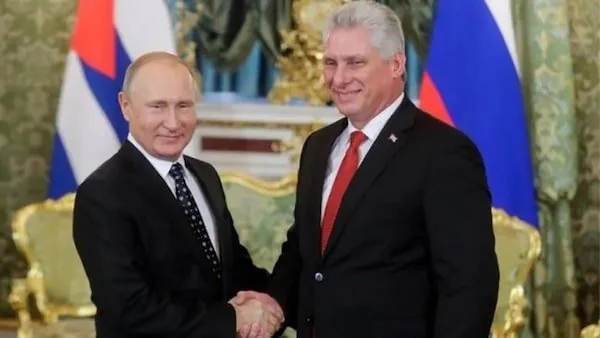
In early October, the Cuban government formalized its request to join BRICS, a group that includes Brazil, Russia, India, China, South Africa and recently expanded to include Egypt, United Arab Emirates, Ethiopia, Iran e Saudi Arabia. The announcement was made during the group’s summit in Kazan, Russia, between October 22nd and 24th.
In a podcast interview Wash meyes Sputnik Brazilexperts discussed the potential impact of this accession for Cuba and the BRICS.
Guilherme Barbosa Pedreschilawyer and author, commented that the main objective of Havana is to seek more favorable conditions to circumvent the sanctions imposed by the United States, seeking a more effective insertion in the global financial system.
He mentioned the possibility of Cuba accessing credits from the New Development Bank, which could strengthen its position in the current multipolar scenario.
Pedreschi also argued that Cuba’s entry into BRICS could significantly increase the island’s influence in Latin America, promoting greater economic interaction in the region.
He sees membership as an opportunity for Cuba to gain greater diplomatic clout and contribute to a new dynamism in Latin America.
“Enter the financial system in a more efficient way and trade in a fairer way. So this seems to me to be the great hope, the great lifeline that signals Cuba to have access to credit from the New Development Bank and thus strengthen itself in this multipolar world that is being redesigned”, he declared.
“This diplomatic gain that Cuba will have, this increase in Cuba’s weight in the international community, tends to flourish in the other countries here […]. I see very positively that a new look is really taking shape in Latin America”, he added.
Another aspect highlighted in the discussion was the potential impact on tourism, one of Cuba’s main economic sectors.
Pedreschi suggested that collaboration with BRICS countries could result in better conditions for tourism, including the creation of specialized travel packages that could increase the number of visitors to the island.
“Cuba is already very open and very easy to get a visa from anywhere in the world […]. But with BRICS partners, it tends to be even better if you promote specialized travel agencies within these BRICS countries. So you have special packages, you have a range of possibilities to increase tourism”, he explains.
Regarding the resilience of the Cuban people in the face of the six-decade embargo, Pedreschi emphasized the political awareness of Cubans, who, despite severe economic restrictions, continue to resist North American influence.
He compared Cuba’s situation with that of Puerto Rico, suggesting that resistance is a necessity to maintain the country’s sovereignty.
José Niemeyer, professor of international relations, analyzed Cuba’s possible accession to the BRICS as a strategic move for both Cuba and the bloc.
He noted that BRICS is increasingly positioning itself as a counterpoint to the NATO-led Western bloc, with Cuba’s membership representing a strong political-ideological component.
Niemeyer also discussed the balance that Brazil must maintain in its international relations, highlighting the importance of China and the United States for the Brazilian economy.
He underlined Brazil’s need to maintain a balanced position, considering its relevance as a green power and a major producer of food and energy on the global stage.
Cuba’s accession to BRICS is seen as a significant development that could realign regional and global dynamics, offering the island a new platform to face the challenges posed by US sanctions and to increase its international influence.
Source: https://www.ocafezinho.com/2024/11/04/banco-do-brics-oferece-solucao-que-pode-livrar-cuba-de-embargo-historico-dos-eua/

